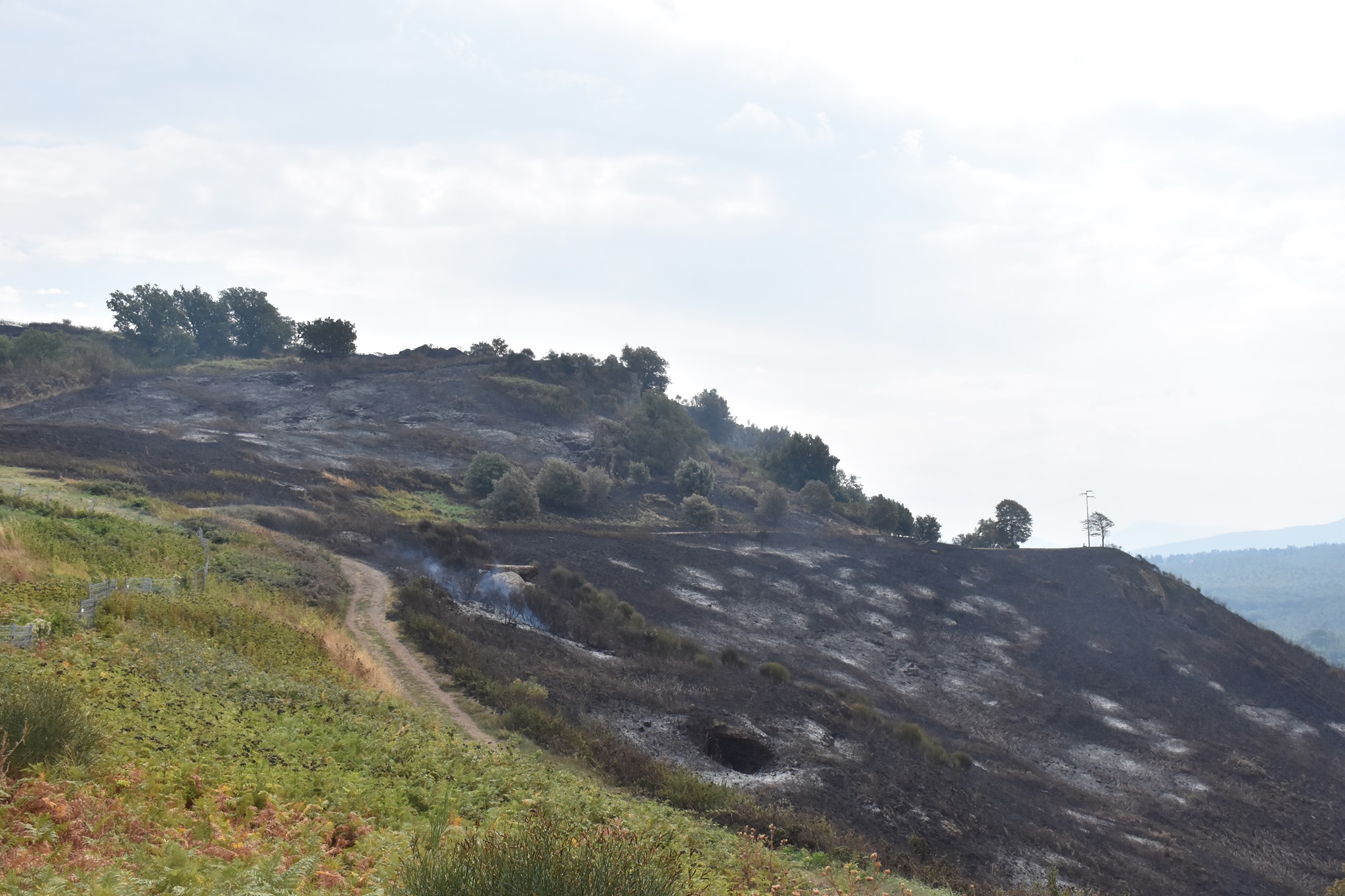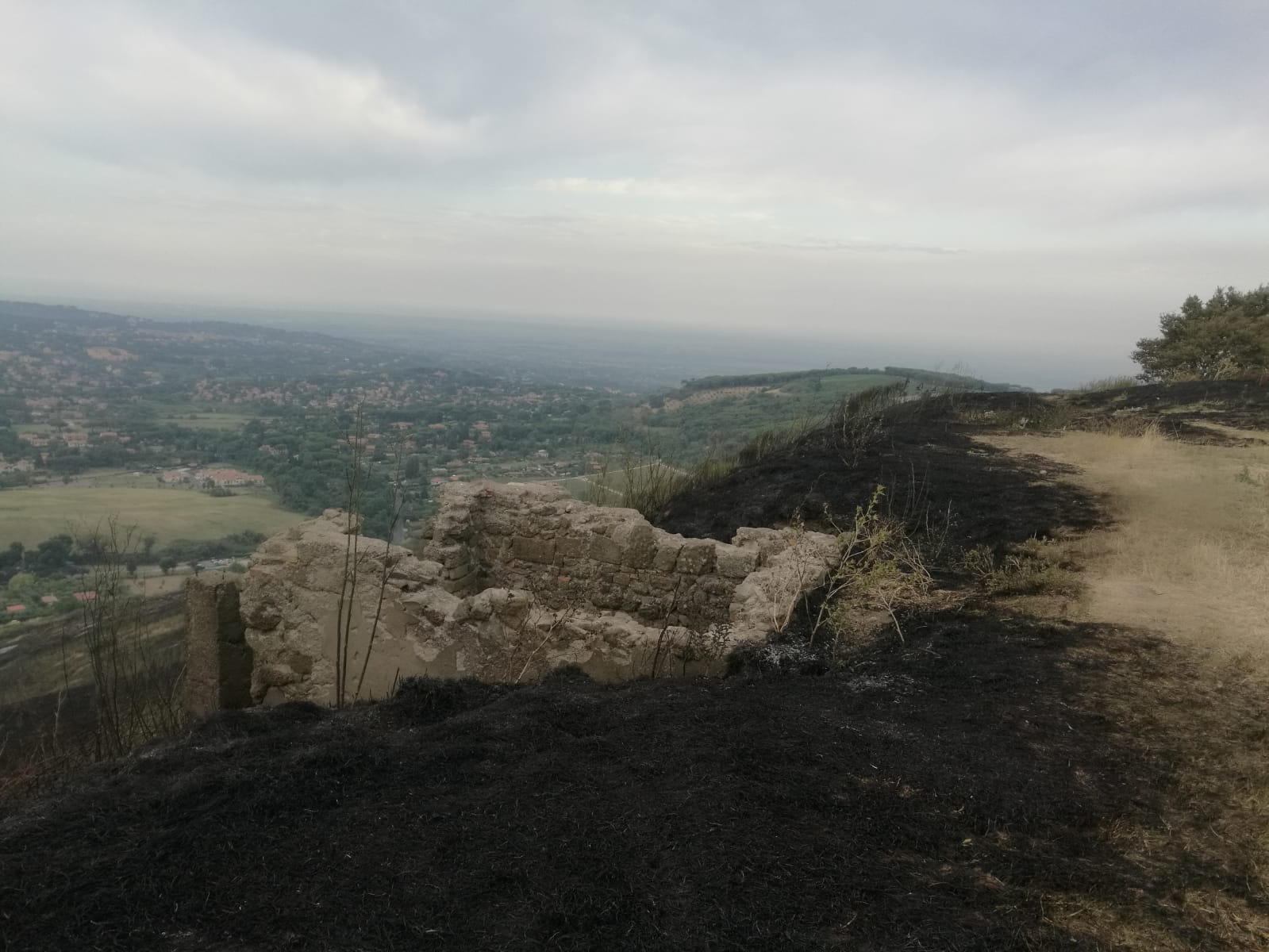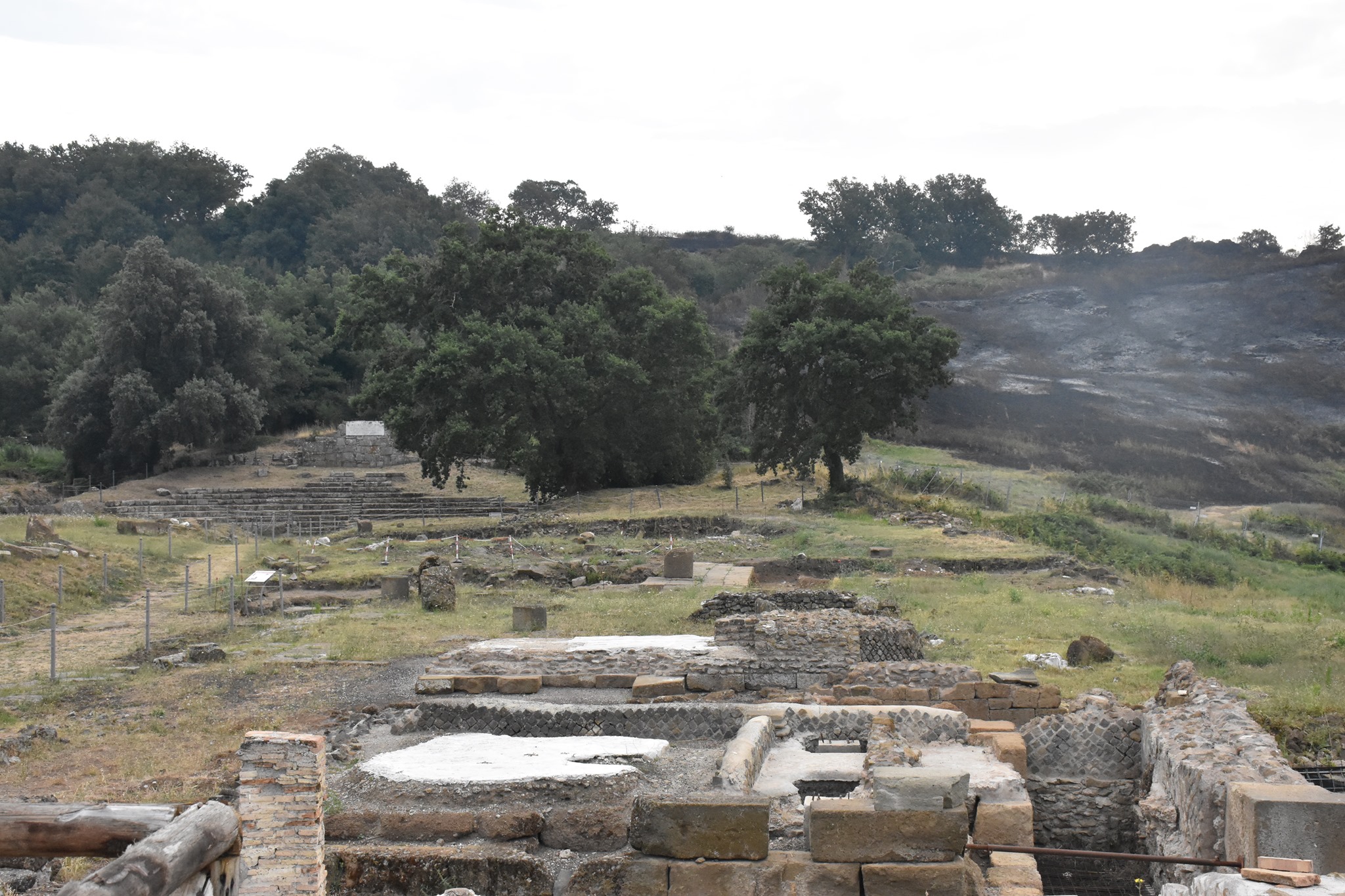FRASCATI, Italy – A recent fire threatened the excavation of the ancient Roman city of Tusculum in the Alban Hills. The site is part of the Colle di Corne a location sacred to Diana and founded by Circe’s son.
On the night of August 22, firefighters were called to Monte Tuscolo, the hill on which the famous ruins were built. Fire brigades responded quickly and found two separate fires that appear to be converging. As the fire progressed, firefighters employed helicopters and tankers to save the ancient site.
Over a hundred firefighters from the nearby towns of Frascati and Marino as well as volunteers joined the effort to contain the blaze.
By the following morning, the fire had progressed up the mountainside and immediately threatened the excavation, which includes a myriad of Roman buildings and an elaborate amphitheater. Helicopters and an 18,000-liter fire tanker ultimately contained part of the blaze sparing the archaeological site. In some parts, the blaze came as close a dozen yards to the side fencing enclosing the archaeological digs.

Thorald Brendstrup (1812-1883) Tusculum, 1848
The Carabinieri Forestali, the police force akin to forest rangers, are investigating the cause of the fires. They have not ruled out arson.
Legend has it that Tusculum was founded by Telegonus, the youngest son of the sorceress Circe and the Odysseus. Other stories say that the Tusculum was founded by a Latin King, Silvius, who descended from Aeneas.
It behaved as an independent city-state for part of the Roman Kingdom and, again according to legend, became an ally of Rome in the 5th Century BCE. About two hundred years later, Rome subordinated Tusculum. Various Roman poets like Cicero, Varro, and Seneca either visited or wrote about the Tusculum.
Tusculum is located just a few miles from Lake Nemi and the town Ariccia, both sacred to Diana. But Tusculum was a sanctuary of the goddess in its own right.
While not much is known about the spiritual practices and worship of Diana at Tusculum, Diana’s association to Tusculum is attested by Pliny the Elder in Naturalis Historia and by stone markings. Diana is referred to by the archaic Latin name deva Cornisca. Roman emperors also visited the site likely to escape the hot summers.

Source: Parco Archeologico Culturale di Tuscolo
Tusculum is often called the Pompeii of Rome. In the latter part of the Middle Ages, Tusculum was lost to the woods and vanished entirely after the city was attacked and destroyed in 1191 CE by Rome.
Nearly 800 years later the town was re-discovered at the top of the hill, where it emerged in practically untouched condition. The first excavation began in 1806 CE and they have continued to this day.
The site has recently experienced a renaissance of activity. The Archeological Park of Tusculum has expanded activities after 1.2M Euro investment in the area to improve both accessibility and site interpretation.
The expanded excavation has resulted in more visitors to the area and new programming for the area has included hiking the trails, and sky-watching one of the darker regions of the sky near Rome.
The fire lasted overnight and was controlled by morning. It reportedly destroyed parts of the hillside but spared the archaeological digs and the ancient stone monuments.
The official posts of the Archeological Park at Tusculum wrote on their feeds:
“It was a hellish, worrisome and emotional night. The morning light has revealed that that the fires licked the archeological structures but left little damage. The preventative measures implemented [bythe firefighters] have protected the monuments and the immediate area. Sadly, much of the landscape has been destroyed and we are in disbelief as well as devastated and angry by this treachery.”
Upon seeing the fires posted on social media one bystander wrote “The entire world seems to be burning… I am willing to volunteer to raise funds, help clean the ash and the replant trees.”
The Park officials added the fire has taught them how much the park is loved by many around the world. They added that the support for Tusculum after the disaster is palpable and they were grateful to the firefighters and the community. The park added that “The many messages of support, solidarity, and love for the land tell us today more than ever, that Tusculum holds a primal place in the soul.”
The Wild Hunt is not responsible for links to external content.
To join a conversation on this post:
Visit our The Wild Hunt subreddit! Point your favorite browser to https://www.reddit.com/r/The_Wild_Hunt_News/, then click “JOIN”. Make sure to click the bell, too, to be notified of new articles posted to our subreddit.


